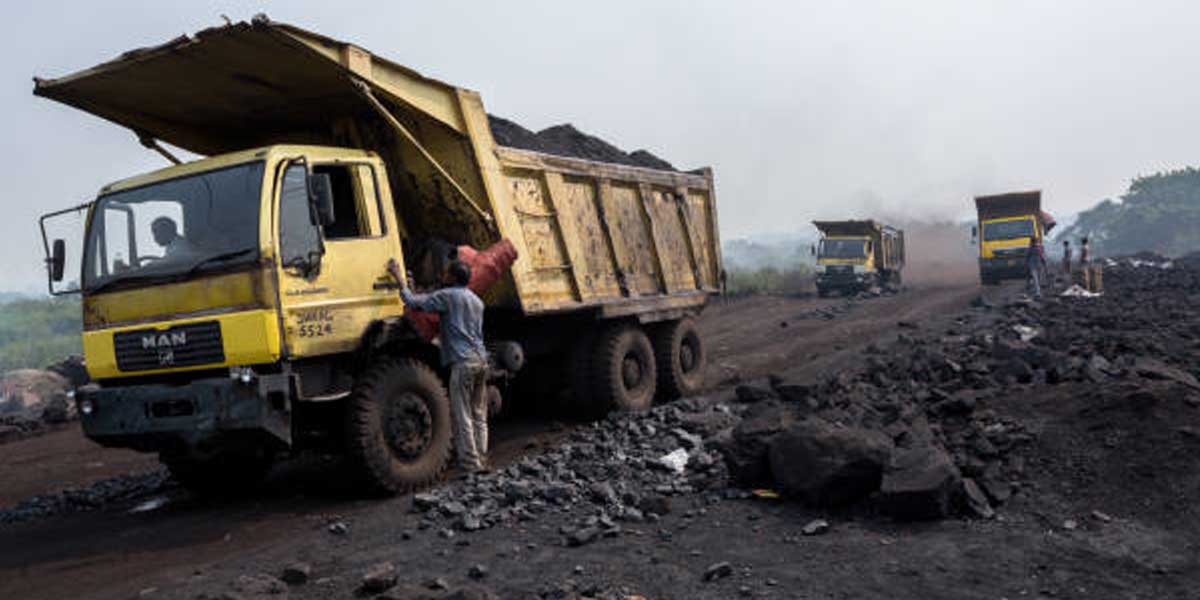

The coal ministry has floated a cabinet note on issues related to non-operational coal mines and has sought views from the related ministries. The proposal also includes allowing both central and state government companies a one-time window to surrender non-operational coal mines without any imposition of penalty. Out of 86 allocated and auctioned mines, 53 mines are non-operational and 42 coal mines belong to central or state government led companies. Seeing a global shift to green energy, and to address the growing environmental concerns, the Indian government is trying to utilise coal reserves within the next three decades. In June 2021, the government announced a rolling auction mechanism wherein any un-auctioned mine shall remain available for auction on the portal, and more mines being added as and when available. In order to accelerate coal production and better utilisation of coal mines, the ministry of coal is said to be looking at allowing both government and private companies to surrender non-operational coal mines without forfeiting bank guarantees. In the past, companies like Tata Steel and SAIL, have surrendered coal mines, whereas companies like GMR, Adani Power, JSW, and others have non-operational mines and may look at surrendering some coal mines.
Some companies however, would look at selling their stakes especially in international coal mines like in case of GMR. In the entire financial year 2020-21, GMR Infra reported a higher total loss of ₹ 3,428 crore and lower revenue at ₹ 6,229 crore, compared to a loss of ₹ 2,198 crore and revenue of ₹ 8,556 crore in fiscal 2019-2020. GMR has been finding various ways to come out of its debts and losses. Recently, it was in news that GMR Infrastructure plans to sell a 30 per cent stake in its Indonesian coal mine to raise up to $400 million.
It is noteworthy that the company announced in the year 2017 to sell stakes and entered into a conditional share purchase agreement with PT Golden Energy Mines Tbk, Indonesia. It was an agreement for selling a 100% stake. In the year 2011, GMR Group through its subsidiary GMR Coal Resources had acquired a 30% equity stake in PT Golden Energy Mines Tbk (PT GEMS).
Clearly, GMR Infra needs to cut down its debt. It has split its operations vertically to hive off airports under a separate vertical for ease of strategic sale. So, what is the latest development in its coal business, and what stake it is wanting to sell now? Under its International Coal Assets umbrella, GMR has a coal mining company called South Sumatra, Indonesia, which it acquired in the year 2009. GMR Energy had acquired 100 percent ownership of PT Barasentosa Lestari (PTBSL) for a sum of USD 100 million. The licence provides 25 year mining authorisation over two separate coal blocks in South Sumatra, Indonesia.
For a few years, GMR has been planning to sell a power plant and its coal mines in Indonesia. In fact, it had signed a pact in February 2020 to sell GMR Kamalanga Energy Ltd, which operates a power plant in Odisha, to JSW Energy Ltd for Rs 5,321 crore. However, the deal was cancelled due to the ongoing pandemic.
Indonesia is the world's largest exporter of thermal coal and due to its proximity to markets like India and China, it is benefited due to availability of immense resources and a river system that offers easy access to coal barges. Indian companies face a challenge in making sure that it receives sufficient coal, at the right price and at the right time. Hence, one of the best solutions is to buy and own the asset.
In 2019, the Ministry of Coal had issued notices to Essar Power and GMR Energy to confiscate their bank guarantees worth up to Rs 900 crore. The Rs 900-crore bank guarantees are for the two blocks of GMR and one of Essar. While Essar won the Tokisud North coal mine in Jharkhand, GMR had placed winning bids for Talabira-I coal mine in Odisha and Ganeshpur mine in Jharkhand.
In 2017, these two companies had moved to the Delhi High Court protesting a change in regulations made by the central government.
The court, however, rejected their claim saying that the two did not approach the court within the stipulated time.
India’s coal production is expected to grow from 777Mt in 2020 to 827.8Mt in 2021, representing a 6.4% increase, according to a new report from GlobalData. Though we see many Indian coal and energy companies buying coal mines abroad, there is a challenge of servicing the loans taken with domestic profits. Pricing is another concerning area. Yet Adani Group has managed to kick off its Carmichael mines in Australia despite huge opposition due to environmental concerns and is expected to deliver 10 million tonnes this year directly to India.
When promoters hold stakes in power companies in India and a mining company abroad, the challenge is the transfer pricing, which means the ability to price coal low and booking higher returns in the power company in India. The promoter controls both ends, and there is no guarantee on how the Indian companies will gain if coal prices are increased or reduced. In the case of Adani however, the Australian subsidiary head has clarified that the coal will be sold at index pricing and it will not be engaging in transfer pricing practices, which means that all of their taxes and royalties will be paid in Australia.
Adani’s case is that of an outlier. Looking at current challenges, and new government rules, coal companies might look at surrendering some coal mines in near future.
Related stories- https://www.